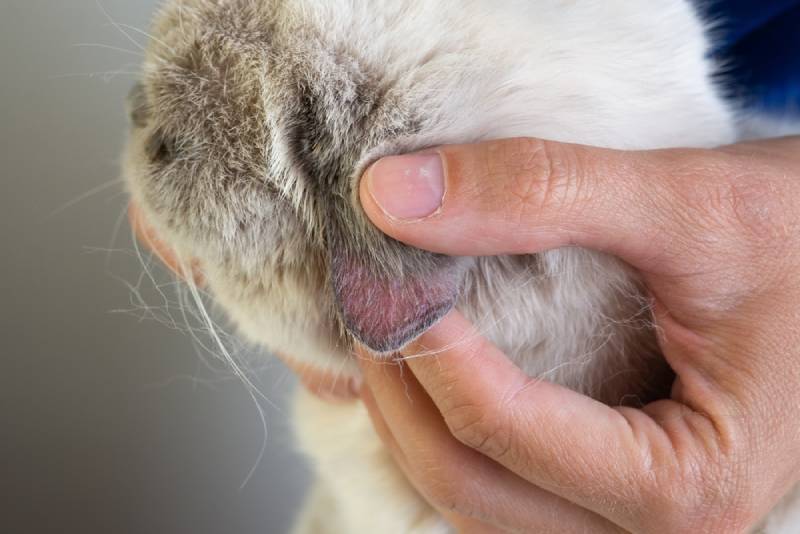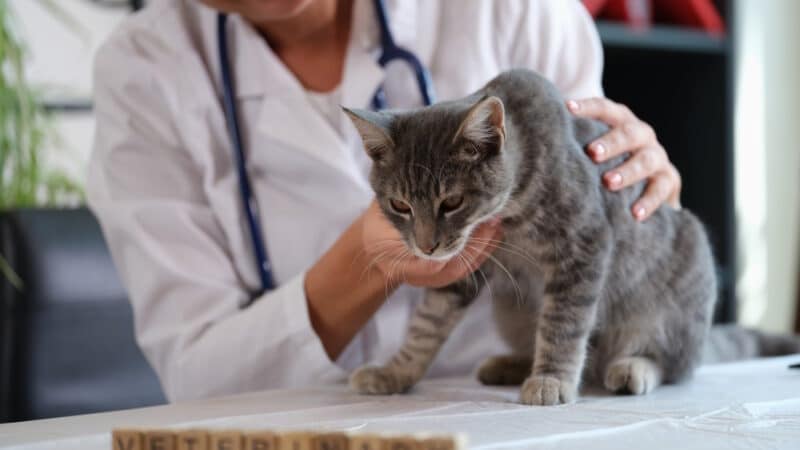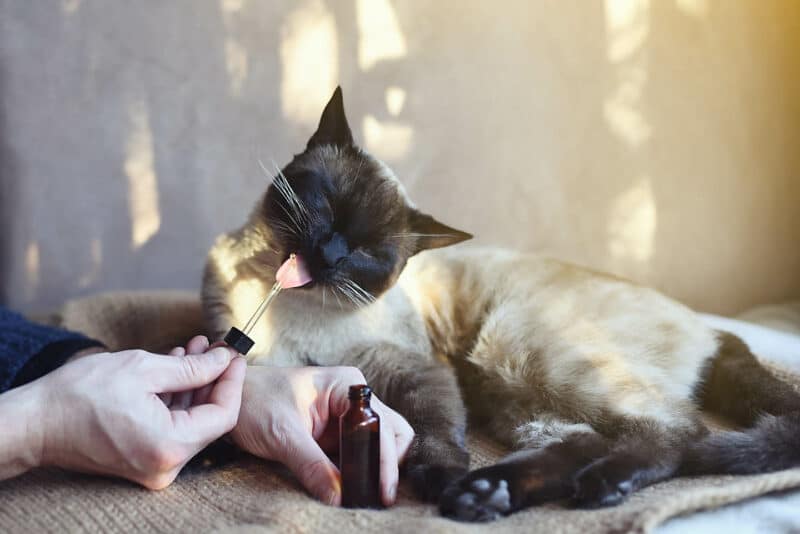There are several different reasons that small sores or scabs may be found around our feline companion’s ears. This can be troublesome to find, especially if bumps seem to persist. Often, the sores are secondary to self-trauma from scratching. Your veterinarian will be able to help determine the underlying cause for pesky sores, but below are some of the most common reasons we see these in our cats.

The 5 Common Causes of Sores Behind Cat Ears
1. Allergies
Cats can have food, flea, and environmental allergies. All types of allergies can result in intense pruritus or itchiness. Sores behind the ears can be a result of self-trauma because of scratching. Treatments to reduce pruritus may be needed in some cases, whereas other situations may require regular flea treatment or a dietary change.
Get in touch with a veterinarian for guidance and advice on the best course of action.
If you need to speak with a vet but can't get to one, head over to PangoVet. It's an online service where you can talk to a vet online and get the advice you need for your pet — all at an affordable price!
2. Ear Infections
Ear problems can cause cats to be itchy around the ear. Bacterial or yeast infections, or parasitic infestations, can lead to ear scratching, head shaking, and discharge. Trauma from scratching can result in scabs and sores around the ears. Otodectes cynotis, ear mites, is a common parasite that can cause intense pruritus in cats as they crawl around within the ear canal. Additionally, foreign bodies or polyps impacting the ears can cause similar signs.
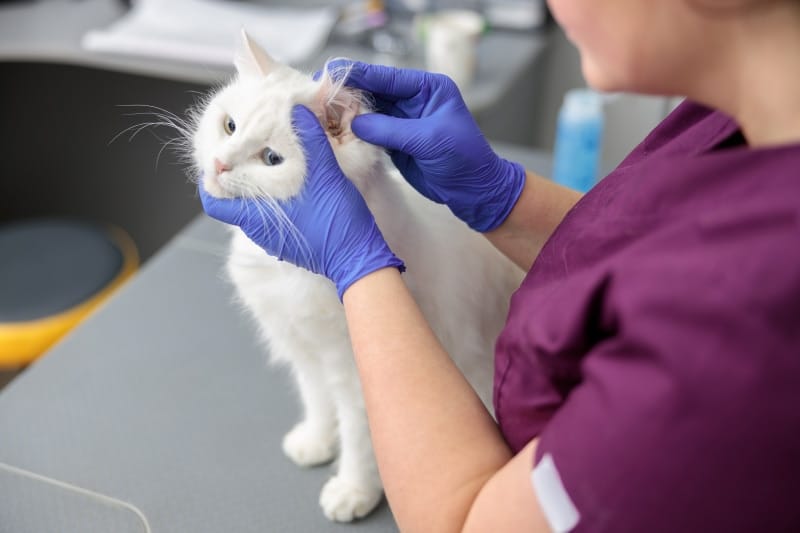
3. Parasites
Ticks and mites may be problematic for some cats resulting in skin irritation. One of the most common reasons for bumps or scabs behind the ears is fleas. Fleas tend to spend a lot of time around the neck and base of the tail. Fleas bite the host and ingest their blood. As a result, small, scabbed areas will be noticeable.
Some cats have allergies to flea saliva, intensifying the itchiness affected cats feel. Cats with fleas will often have bites throughout their body; however, a majority may be felt around the neck region. Keeping up with monthly parasite treatment will help prevent several of these parasitic causes of skin irritation.
4. Skin Infections
Fungal and bacterial infections can certainly result in visible and palpable bumps. Medications may be needed to help improve the infections which may be in topical, oral, or injectable form. Skin infections may also be a sign of an underlying problem like allergies.
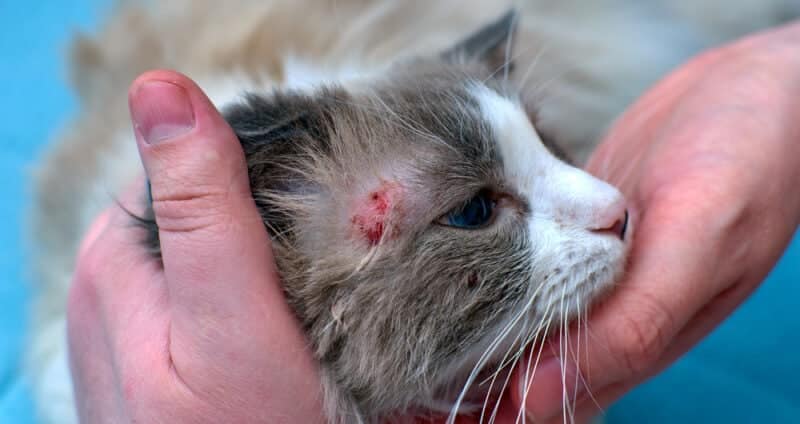
5. Abscess
Cats that live with other cats or go outside may get into fights. This can result in the formation of an abscess, which is commonly located on the head and may be behind the ears. Abscess is a pocket of pus, due to a bite or a claw injury often inflicted by another cat, and will form a swelling. This will eventually burst, discharging blood-tinged pus. All abscesses should be treated by a vet, and some may even need surgical management.

Diagnosing the Cause of Bumps
Your veterinarian will perform a physical examination of your pet and ask questions regarding diet, preventative care, and duration of signs. With this information, your veterinarian will be able to come up with a list of possible causes.
Additional tests may be necessary to pinpoint the underlying cause. Skin scrapings, ear cytology, and tape prep are just a few of the tests that may be beneficial. Successful treatment will be dependent on the underlying cause.
How Best to Care for Your Cat
Closely monitoring your cat for signs of self-trauma is important. You may note a seasonality to the pruritus, which may help your vet determine if allergies are a concern. Additionally, many monthly parasite preventatives can help eliminate numerous causes of parasitic skin conditions, including mites, fleas, and ticks. Prevention should be considered in all cats, even those living strictly indoors.
If self-trauma is severe, an Elizabethan collar should be worn to physically block scratching from occurring. Nails should also be kept short to minimize trauma.

Conclusion
Bumps behind the ears can originate from several different causes. A visit with your veterinarian will be helpful in pinpointing the underlying cause of the lesions. Fortunately, in most cases, bumps occurring around the ears can easily be resolved.
Featured Image Credit: Yekatseryna Netuk, Shutterstock
